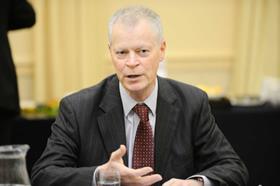The chief gatekeeper of the Law Society’s accreditation scheme for conveyancing firms today denounced the indiscriminate use by practitioners of 'standard' additional enquiries. Such enquiries 'create a lot of bad feeling' between solicitors and 'waste an enormous amount of time', Peter Rodd, chief assessor for the Conveyancing Quality Scheme, told the Society’s National Property Conference. He also warned that the practice amounts to a breach of the Society’s own Conveyancing Protocol.
Rodd, former senior partner and now a consultant at Kent firm Boys & Maughan, was reflecting on the Society’s analysis of 461 firms that submitted digital applications for CQS accreditation after the process moved online last year. Of those firms reaccredited through the platform, 38% said they raised 'standard' additional enquiries.
'The one issue that the CQS receives numerous letters of complaint about is solicitors on the other side raising standard pre-contract enquiries,' he said. 'It wastes an enormous amount of time and it’s a breach of the protocol, which was designed to smooth the transition of ownership of property from seller to buyer. It [the protocol] talks about solicitors working together to achieve this. But the reality, in too many cases, is that it’s like a pair of litigation lawyers going at it hammer and tongs, and arguing about something very petty that should never be a point of contention.'

He added: 'What I don’t understand, and I’d love somebody to come and tell me, is why would you raise page after page of standard additional enquiries when the conveyancing process is becoming more and more complicated year on year? It creates a lot of bad feeling between solicitors. Very often it’s asking questions about the condition of the property, which is a breach of the protocol or..questions about the standard conditions of sale. In many cases I can’t help thinking it reflects the ignorance of the person asking the questions.'
Firms that have admitted to using standard additional enquiries 'can look forward to receiving a letter from the CQS office in the coming weeks', Rodd said.
The chief CQS assessor also counselled the 11% of firms who said they have not undergone a recent audit of practice-wide risk assessment for anti-money laundering to get an audit done.
He also called on the 29% of firms who are not Cyber Essentials- or Cyber Essentials Plus-certified to reconsider. 'The risk [of cyber crime] is substantial,' said Rodd.
This article is now closed for comment.



























23 Readers' comments